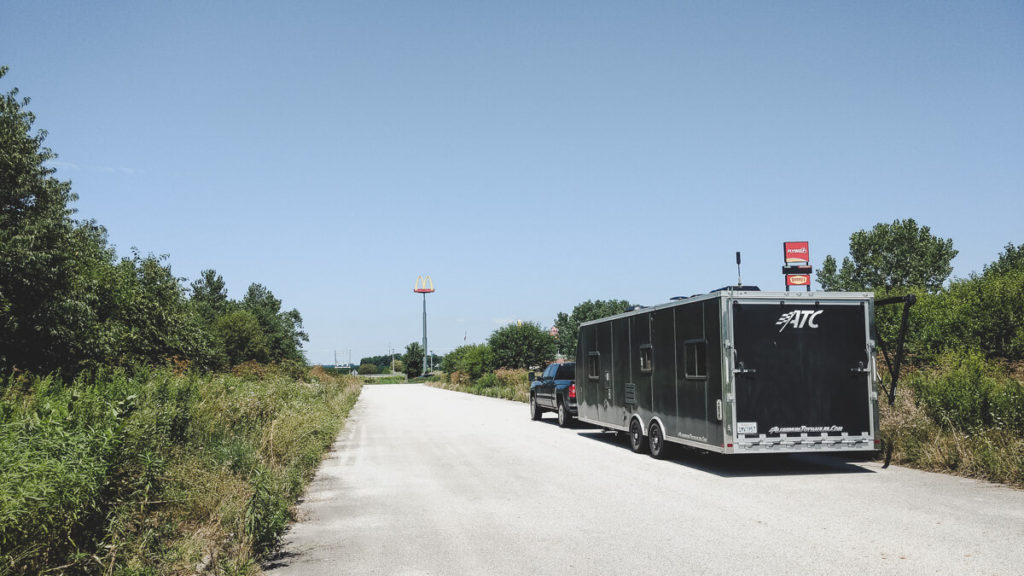Yes, in the United States, is it legal to live in a camper. In fact, there are perhaps a million Americans that already do this full time. The real question is, where. There are no laws at the federal, state, or local level against living full time in a camper, in general. However, there are laws and regulations against parking overnight, camping, or sleeping in a vehicle, in specific places.

Is it Legal to Live in a Camper?
It’s a pretty safe bet to say that it’s legal to live in a camper on federal lands managed by the Bureau of Land Management (BLM) and the U.S. Forest Service (USFS). These two federal agencies manage so much land, that it can provide you with a home for the rest of your life. BLM lands are found in the western United States, while USFS lands are found all across the country.
However, you are not allowed to remain camped in the same place for more than fourteen (14) days on average. But, as long as you keep moving every two weeks, it’s legal to do so. In fact, hundreds of thousands of Americans are currently doing this, perhaps a million.
Can You Live in a Camper in the City?
Technically, no. However, most city police departments are having a tough time enforcing these laws.
Every medium to large city already has laws on the books that make it illegal to camp anywhere within city limits, with the exception of lands zoned for RV parks and campgrounds. Moreover, these cities also have laws against sleeping in a vehicle between certain hours of the night, and/or parking overnight between certain hours.
However, because of political and social reasons, most of these cities have instructed their police departments not to enforce these laws. This results in the creation of tent cities along downtown sidewalks, as well as rows of cars, vans, and RVs used as shelters.
But, most boondockers don’t want to live in cities. They prefer to camp far away from other people.
What About Camping on Your Own Property?
This is where it gets difficult.
You can camp on your own property, but it may be illegal depending on which city or county you live in. Most cities will allow you to set up a tent in your backyard for purposes of temporary shelter or play. However, as soon as someone establishes that tent or camper as a permanent residence, the city’s building inspector will pay a visit.
Any kind of structure or vehicle used as a permanent residence is subject to the city’s building codes, which includes plumbing codes, electrical codes, and fire and safety codes. Codes will require there be windows, doors, restroom, as well as a septic tank or a drain into the city’s sewage system.
If your land happens to be in a rural area, where no one can see you, you will very likely get away with doing so. However, all it takes is one angry neighbor to call the county’s code enforcement officer, and your life will become miserable.
Do You Need Special Insurance to Live in a Camper?
No, you do not need special insurance to live in a camper. The only insurance you will be required to have is the basic driver’s liability insurance that each state demands. But otherwise, there is no other insurance necessary to cover damage to your vehicle or your belongings.
Some people do buy extra insurance to cover damage to their camper, car, or RV, as well as the personal belongings inside. But this is purely optional.
Where to Live in Your Camper
Your safest bet is on lands managed by the Bureau of Land Management (BLM) and the U.S. Forest Service (USFS).
The BLM manages the most lands in the United States. But, they are found exclusively in the western United States, generally from the Pacific Coast out to the Rocky Mountains. Learn where to find BLM Land Maps.
The USFS manages all the national forests and national grasslands in the United States. Find maps of all national forests and grasslands.

